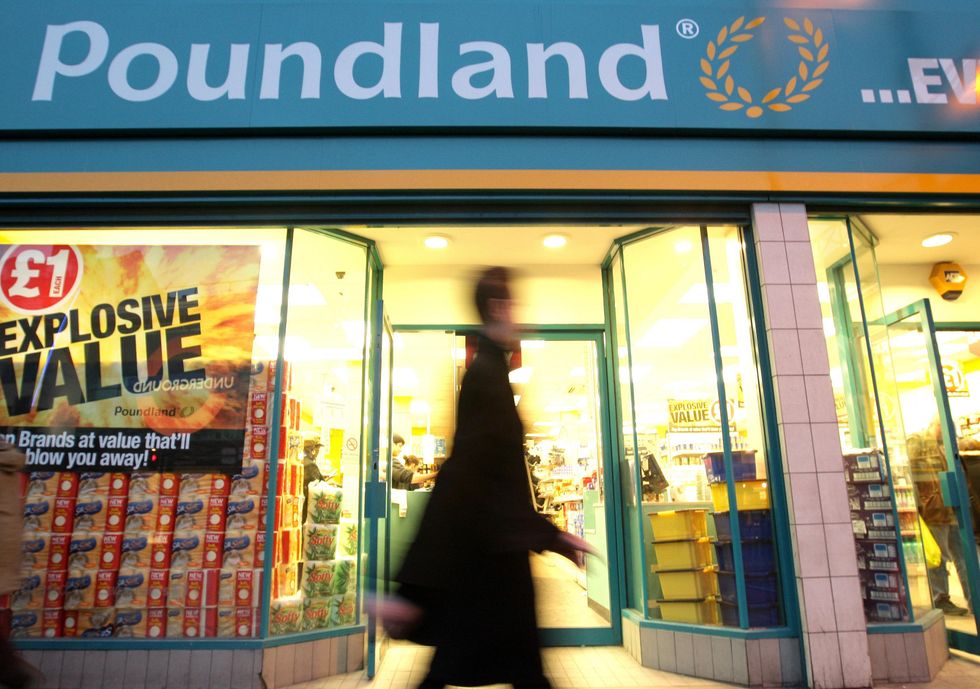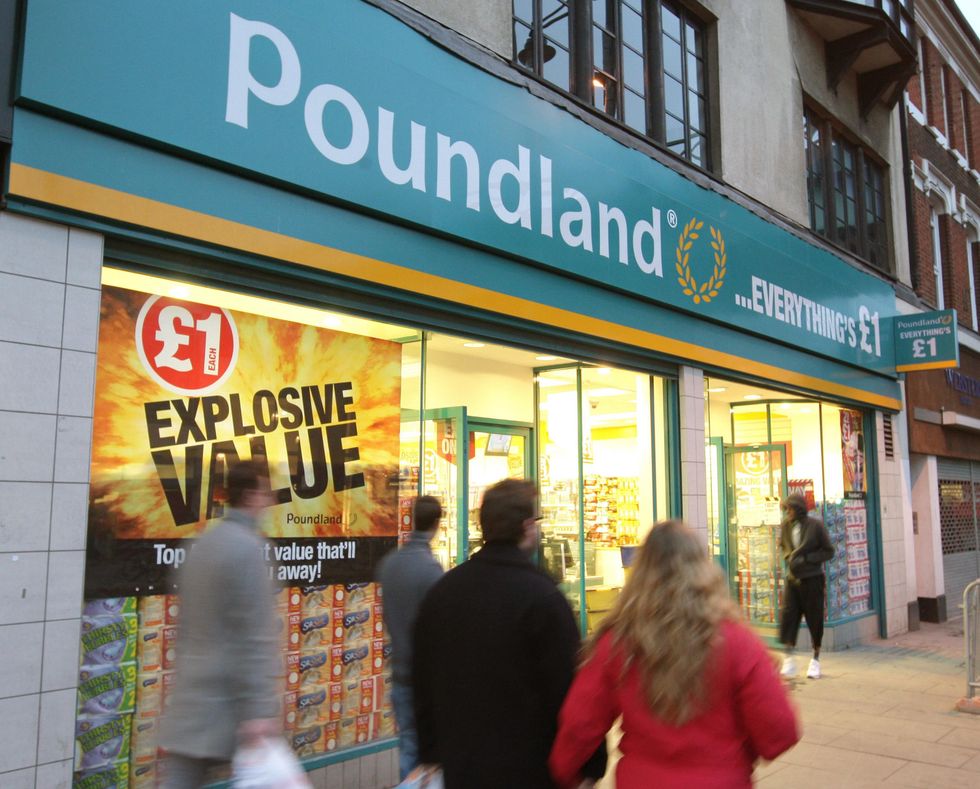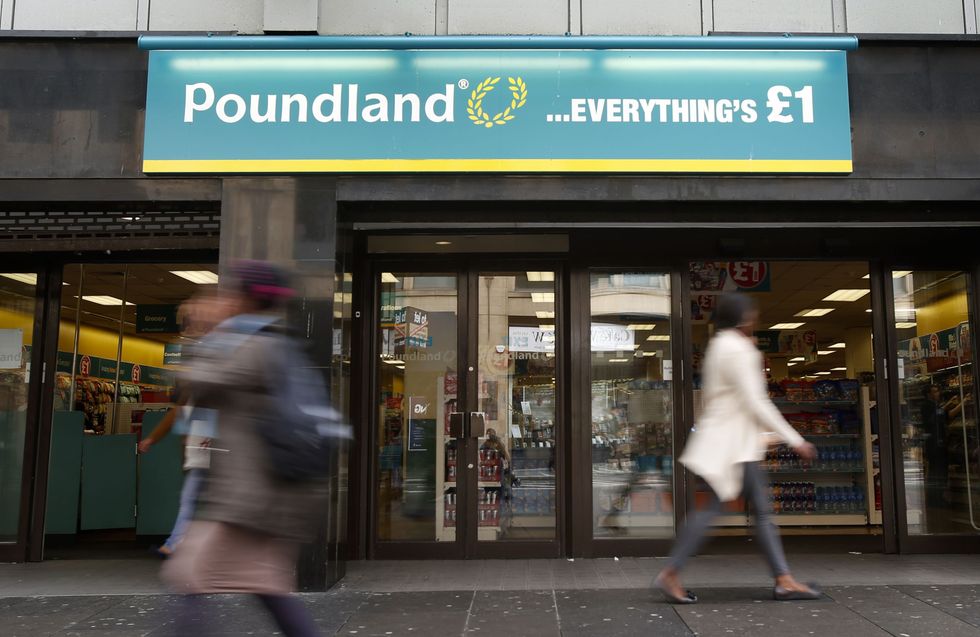WATCH NOW: Mike Parry sees 'total devastation' for the high street
GB NEWS
Poundland is a staple store across British high streets
Don't Miss
Most Read
Trending on GB News
Poundland's future hangs in the balance as its owner explores radical options that could affect its 800-store network across the UK.
Parent company Pepco has brought in consultants from AlixPartners to assess potential paths forward for the troubled discount retailer.
The options under consideration include a formal restructuring process that could lead to significant store closures, or even putting the business up for sale.
A Company Voluntary Agreement (CVA) is also being explored, which could allow the chain to negotiate reduced rents with landlords or close underperforming locations.

A general view of a Poundland store in Brixton
PA
The move comes after Pepco's latest trading update revealed concerning performance figures for the bargain chain.
No final decisions have been made, with Pepco stating its primary focus remains improving Poundland's cash performance and revitalising its customer proposition.
Formal plans for the chain's future are expected to be announced by Pepco Group CEO Stephan Borchert on March 6.
Revenue at Poundland plunged by 9.3 per cent in the three months leading to December 31, highlighting the scale of challenges facing the discount retailer.
The chain closed 13 stores during this quarter while opening just two new locations, marking a significant shift from previous expansion plans.
The company has now confirmed it will not increase its store numbers over the current financial year, focusing instead on improving sales at existing locations.
LATEST DEVELOPMENTS:
A general view of a Poundland store in Brixton, London
PA
This strategic pause in expansion comes as Poundland's parent company Pepco reported a £641million profit decline in the year to September.
The significant downturn was attributed partly to what the company described as "a non-cash impairment at Poundland that relates to the acquisition of the UK chain in 2016."
These financial challenges have prompted the current review of operations across the business's extensive store network.
A Pepco Group spokesman said: "As we stated in our Q1 results on 16 January, getting Poundland back on track is a key priority and we are undertaking a comprehensive assessment of the business and taking immediate measures on improving Poundlands cash performance and strengthening the customer proposition."
CEO Stephan Borchert acknowledged the chain's mixed performance in its first quarter.
"Poundland saw like-for-likes fall, largely driven by continued underperformance in clothing and general merchandise following the transition to Pepco-source product," he said.

Poundland shop in Glasgow, Scotland
PA
Borchert emphasised the urgency of addressing these challenges, stating: "Getting Poundland back on track is a key priority - we are undertaking a comprehensive assessment of the business and taking immediate measures on improving cash performance and strengthening the customer proposition."
In October, the chain's Maidenhead High Street branch closed after failing to secure a landlord agreement, leaving local residents concerned about their area becoming a "ghost town."
This closure was particularly notable as the store had only recently replaced a former Wilko location in 2023.
Additional closures included the Sutton Coldfield branch on October 5 and the Macclesfield site in August, the latter due to lease agreement issues.
The chain's difficulties stem partly from its transition to Pepco-sourced products, which has led to underperformance in clothing and general merchandise sales.
These closures reflect broader challenges in the retail sector, where rising costs and cautious consumer spending have created a challenging business environment.
Despite traditionally strong performance from discount retailers, increased competition from rivals like B&M and Home Bargains has added pressure to the sector.
The retail sector's challenges have been compounded by recent policy changes announced by Labour Chancellor Rachel Reeves.
Employers face increased National Insurance contributions, with the threshold for payments reduced from £9,100 to £5,000.
This measure is expected to raise £25billion, equivalent to approximately £800 per employee for each business.
Adding to cost pressures, the minimum wage will increase to £12.21 per hour from April, while workers aged 18 to 20 will see their minimum wage rise by £1.40 to £10 per hour.
Major retailers including Greggs, Sainsbury's, Next and Halfords have criticised these changes, warning they could lead to higher prices for consumers.
Pepco specifically cited "a higher cost outlook in the UK following the recent Budget" as a concern for its operations.








